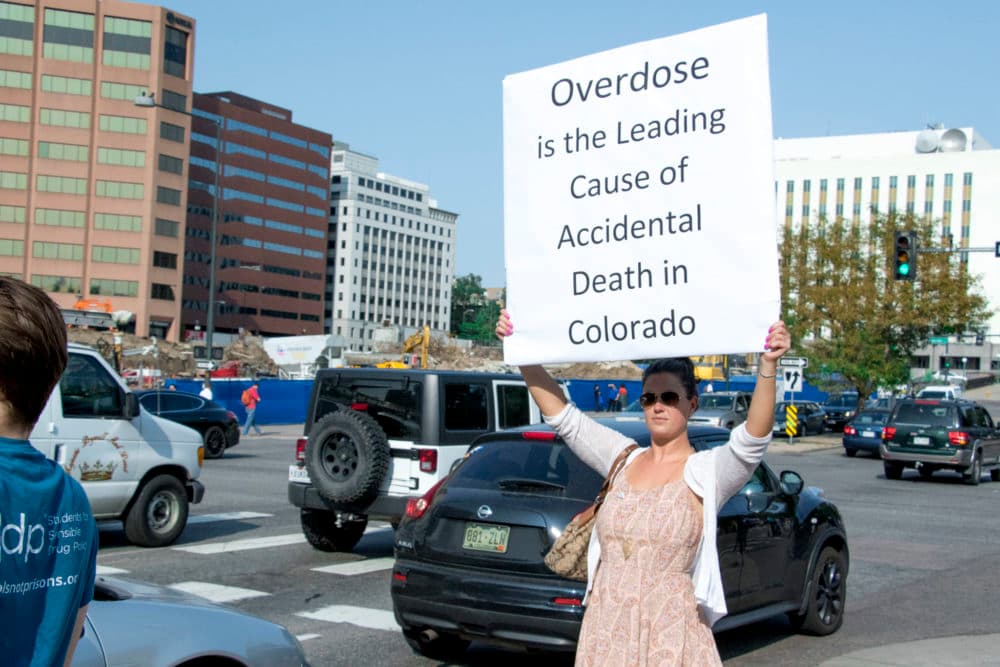
The Colorado Department of Human Services received $950,000 Thursday to combat opioid overdoses and to help Colorado ramp up drug abuse prevention efforts.
The grant was one of several, totaling $53 million, distributed by the U.S. Department of Health and Human Services to expand treatment options nationwide.
The Colorado Department of Human Services (CDHS) said it would use the one-year grant to improve opiate data collection and research, begin tracking overdoses and expand its Medication Assisted Treatment Program.
Based on the success of the program and funding availability, the one-year grant may be extended.
Overdoses in Colorado and the nation are on the rise. They're up 68 percent since 2002. Within the first seven months of 2016, 91 deaths were reported, said Lisa Raville, Harm Reduction Action Center.
According to the state, about 40,000 individuals in Colorado are estimated to need opioid addiction treatment, but only about 3,500 are receiving methadone-assisted treatment.
The Colorado Medication Assisted Treatment Program provides medications to help people safely detox from or reduce dependency on prescriptions opioids and heroin.
Currently, methadone treatment is only offered in specialized clinics.
These clinics are often understaffed.
Private practice physicians can administer the treatment drugs Buprenorphine and Vivitrol. But they must receive specialized training.
Often, physicians can't afford to take the training or just don't want to, said Marc Condojani, Colorado Department of Human Services Division director. Stigma associated with heroin and opioid abuse is sometimes a factor.
Funding from the federal grant would be put toward educating more doctors about the benefits of providing in-office opioid abuse treatment. Some funding will also be put toward paying for specialized training sessions for doctors.
Increasing the amount of doctors who administer these drugs would greatly increase availability to those in need, especially in rural Colorado.
The state's other option to up treatment providers is to pair doctors and administrators from methadone clinics with private practice physicians. These partnerships would enable private practice physicians to draw on the years of experiences their partners have in treating substance abuse.
“This grant offers an exciting opportunity for treatment providers to offer these CMAT services that they might not have been able to provide before,” said Denise Vincioni, Opioid Treatment Authority and Controlled Substances administrator.
With the help of the grant, Colorado hopes to reach an additional 250 people by the end of the year.
"[Assisting 250] is the bottom line," Condojani said. "We need to hit that, but the demand in Colorado is sufficient enough that if we do this well enough we will hit far beyond that goal."
Based on death and emergency room admission data, populations in Denver, Boulder, Arapahoe, Adams, Jefferson, El Paso and Pueblo counties have been identified as the most vulnerable to opiate abuse and overdose. The Colorado Department of Human Services has requested physicians in these counties submit proposals to receive funding for treatment training.
"There is so much attention around heroin and opiate use right now, I want to get the message out that people do recover," Candojani said. "If there is good news for heroin, it's that the treatment we have for heroin is better than the treatment we have for any other drug."
Multimedia business & healthcare reporter Chloe Aiello can be reached via email at [email protected] or twitter.com/chlobo_ilo.
Subscribe to Denverite’s newsletter here.












